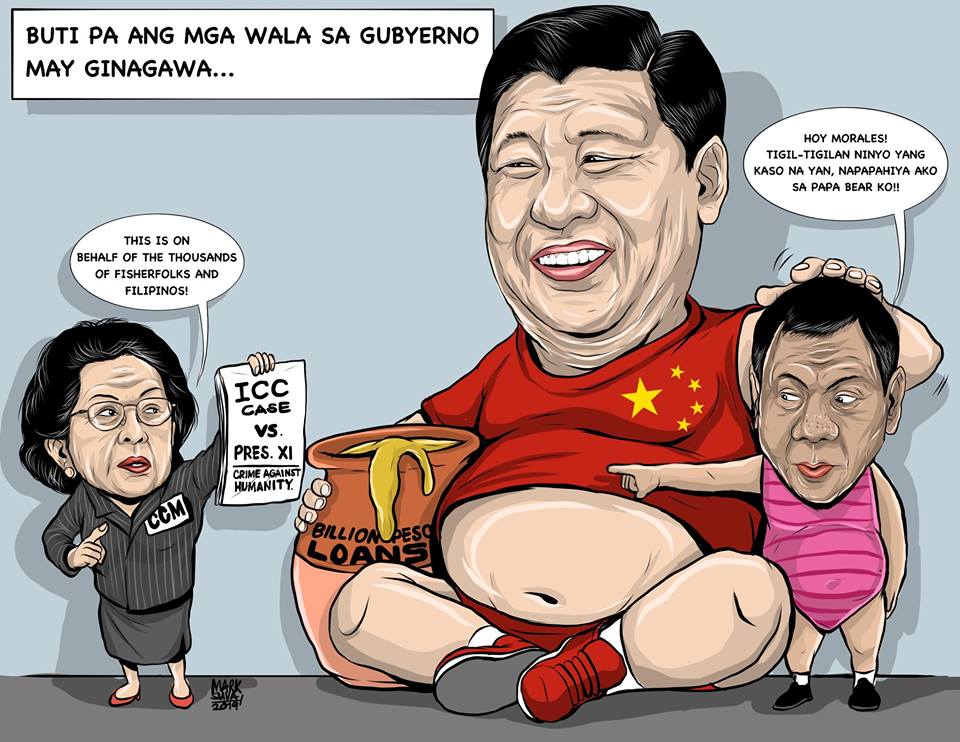Farmers to Marcos: Talk to China about veggie smuggling
Farmers have asked President Ferdinand Marcos Jr. to call the attention of the Chinese government to the rampant smuggling of agricultural products to the Philippines.
As Marcos starts his state visit to China today, the Kilusang Magbubukid ng Pilipinas (KMP) said the concurrent agriculture secretary must discuss with Chinese authorities the illicit trade of agricultural products the group says contributes to the uncontrolled rise in prices of some vegetables in the local market.
“Despite China being the Philippines’ top trade partner in 2021, with total trade valued at $38.35 billion, there is still an unimaginable extent of illicit trade. Smuggled onions from China have pushed up onion retail prices to as much as P700 per kilo in local markets. This is very alarming,” the KMP in a statement said.
KMP said Marcos should ask Chinese law enforcement to curb smuggling activities and crimes at their Customs control areas especially Hong Kong.
“We know that China customs carry out heavy-handed policies against smuggling. They should do their very best in apprehending big-time Chinese smuggling syndicates who are in cahoots with local smugglers,” KMP leader Danilo Ramos said.
Ramos added that majority of frozen and fresh vegetables intercepted by the Philippine Bureau of Customs in the past year were from Hong Kong and China.
“The Philippine government is losing billions worth of revenues as a result of these smuggling activities,” Ramos said.
Transparency in trade
The KMP said Marcos must also reveal if he wishes to continue with the China-Philippines agricultural cooperation signed by former Philippine President Rodrigo Duterte and Chinese counterpart Xi Jinping in 2016.
The said agricultural trade agreement led to China becoming the Philippines’ third-largest export destination of agricultural products and its second-largest import source of Philippine farm products, the group revealed.
The agreement negatively affected local food self sufficiency as it heightened the country’s exportation of agricultural products, KMP’s Rafael Mariano said.
KMP said the since the trade agreement has been signed, the Philippines started exporting fresh coconuts and avocados to China while securing more than half of the market share of bananas in Chinese markets.
Chinese investments in agriculture also grew exponentially over the years as China also supported irrigation and agricultural technology projects, particularly the Philippine-Sino Center for Agricultural Technology that cultivates China-origin commercial hybrid rice.
“Dapat palakasin ang local na produksyon ng pagkain at agricultural products para sa mga Pilipino mismo. Lalabas, mas malaki pa ang pakinabang ng China sa ating agrikultura kaysa sa mga Pilipino,” Mariano said.
(Local food and agriculture production must be strengthened for Filipinos. As it is, China benefits more from our agriculture than Filipinos.)
Marcos Jr. is expected to sign at least 10 bilateral agreements with China during the state visit, including agreements on trade and investments, agriculture, renewable energy, infrastructure, development cooperation, people-to-people ties, and maritime security. # (Raymund B. Villanueva)

